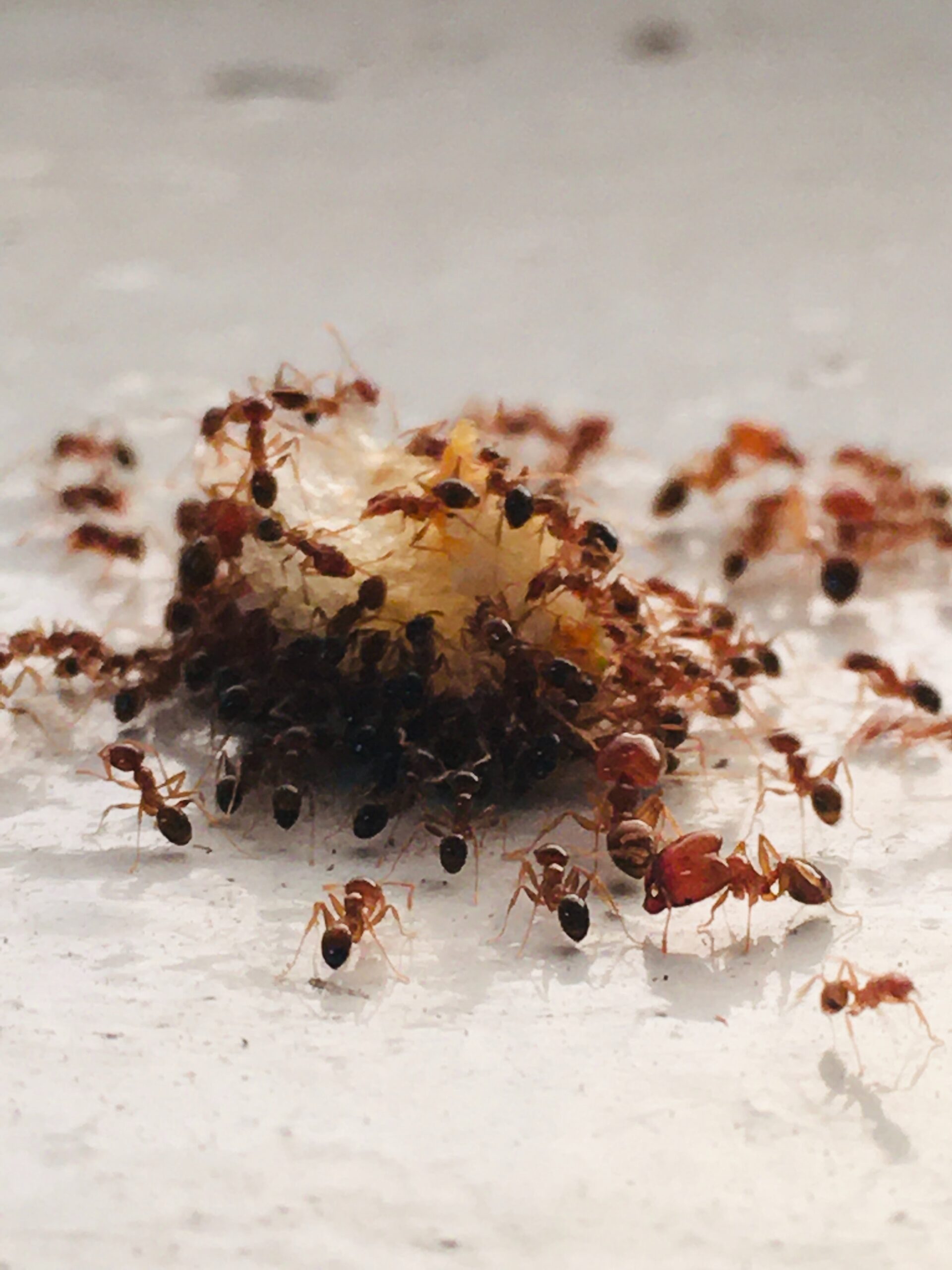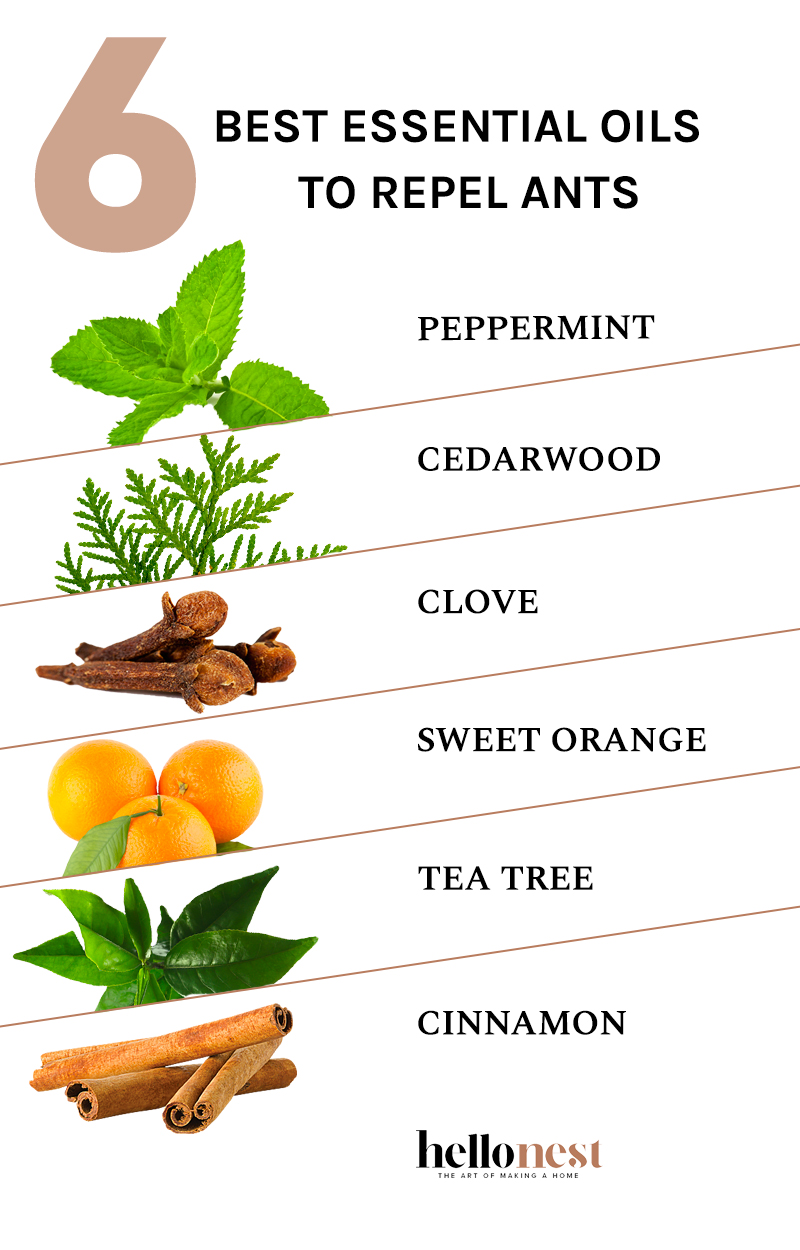To some people, the spider is the epitome of the unwanted houseguest, but if you’re anything like me, ants are enemy number one. I’ll take a quiet, independent spider over an entire colony of creepy crawlies any day. Growing up, my family had a little summer getaway in the sandy hills near a beach, and that also meant it was prime real estate for those large, destructive carpenter ants. I’m so haunted by the memories of them that I’m left with a bit of an irrational fear (and the occasional nightmare!) and will do just about anything to keep them far away from my living space. Whenever possible, I also prefer to tackle them naturally, and without harsh and harmful chemicals.
If you find any ants in your home, the first thing you’ll need to know is where they are coming in. If possible, seal that area up. This is also the place where you’ll want to deposit a strong scent to help keep them away. Pay close attention to the path they most commonly take in and around the house as they are both laying down and following pheromone-scented trails around as a way of communicating with one another. If you see them in a particular area of the kitchen, for example, this is an important place to focus your cleaning in order to interrupt their scent-based messages. Lastly, you’ll want to put together a strongly scented ant spray to help you eliminate the ones that you come across. When you kill an ant with a tissue, for example, they emit a strong alarm pheromone scent which alerts others to come to the rescue. When you rid of an ant using a strong scent-based product, however, this line of communication is interrupted.
Some of the most effective essential oils you can use to combat ants around your home are:
- peppermint oil
- cedarwood oil
- clove oil
- sweet orange oil
- tea tree oil
- cinnamon oil
5 Ways to Use Essential Oils to Kill and Repel Ants
1) Ant repellant spray
To keep ants at bay, try this spray around your doorways, along baseboards or windows frames, or anywhere else you’ve seen ant activity. Combine the following into a small spray bottle:
1/4 C water
1/4 C vodka (works as a solvent)
10 drops of tea tree oil
15 drops of peppermint oil
3 drops of sweet orange oil
Shake well.
(source)
To make an all-natural ant-repellant spray that’s safe to use around food preparation areas such as countertops, combine 1/4C water with 15 drops of peppermint oil with 7 drops sweet orange oil.
Spray liberally wherever you suspect ants are frequenting (source.)
2) Target known areas with scent
If you know where ants are coming in, or tend to see them around a specific area that’s out of reach of pets (remember that pets can get into essential oils and be sick, so keep out of reach of any curious creatures!), try placing a few drops of a strongly-scented essential oil known to be offensive to ants onto a cotton ball to keep them at bay. Try 3-4 drops of peppermint oil, clove oil, cedarwood oil, or cinnamon oil, and refresh every day or two. If you see ants still coming in, add more drops of essential oil to the cotton.
You can also use a few drops of peppermint oil on a cotton swab and rub the oil along the periphery of windows, door frames, or under sinks and cabinetry as needed.
3) Wash away the scent trails
According to Good Housekeeping, sweet orange oil’s high d-limonene content is toxic to ants and erases their chemical trails. The eugenol in clove acts as an ant toxin and repellant, and peppermint serves as a natural insecticide that both repels ants and also masks the scents they try to leave behind. To wash away the scent trails left behind by ants, you can create an effective cleaning spray with:
4 ounces water
4 ounces witch hazel
2 teaspoons liquid Castile soap
50 drops sweet orange essential oil
30 drops peppermint essential oil
20 drops clove essential oil
8 ounce spray bottle
(source)
4) Use cedarwood in and around your home
Studies have shown that cedarwood is an effective ant repellant and will redirect them if placed as a barrier between them and their food source. If you have cedar chips, you may want to place them outside of your home near where the ants are coming in, or spray cedarwood oil in the area. You can also place cedarwood oil on cotton balls, near any suspected colony activity, or near their food source. Cedarwood is also effective in dealing with more aggressive species of ants such as fire ants (source.)
5) Kill on-contact ant spray
I’m sure we’d all rather keep the ants away then have to kill them directly, but if you’re in a situation where the ants have made their way in and need to be dealt with, Castile soap is known to be an effective ingredient in natural ant killers. Combine 1L of water, 1/4 C Castile soap, and 10 drops of peppermint essential oil.
It’s best to get on top of any ant-related issues as soon as you notice them and to make your home as inhospitable to their senses as possible. Once they find a reliable food source and get themselves settled, you could end up with a whole colony on your hands, which could require some professional-grade assistance.
Photo by Marco Neri on Unsplash
3

Leave a Reply